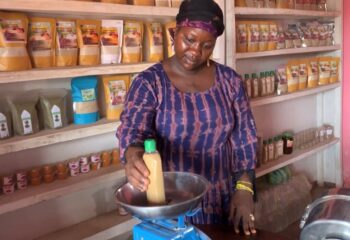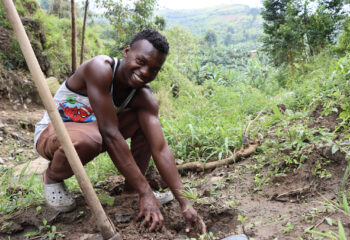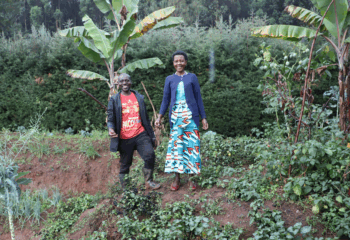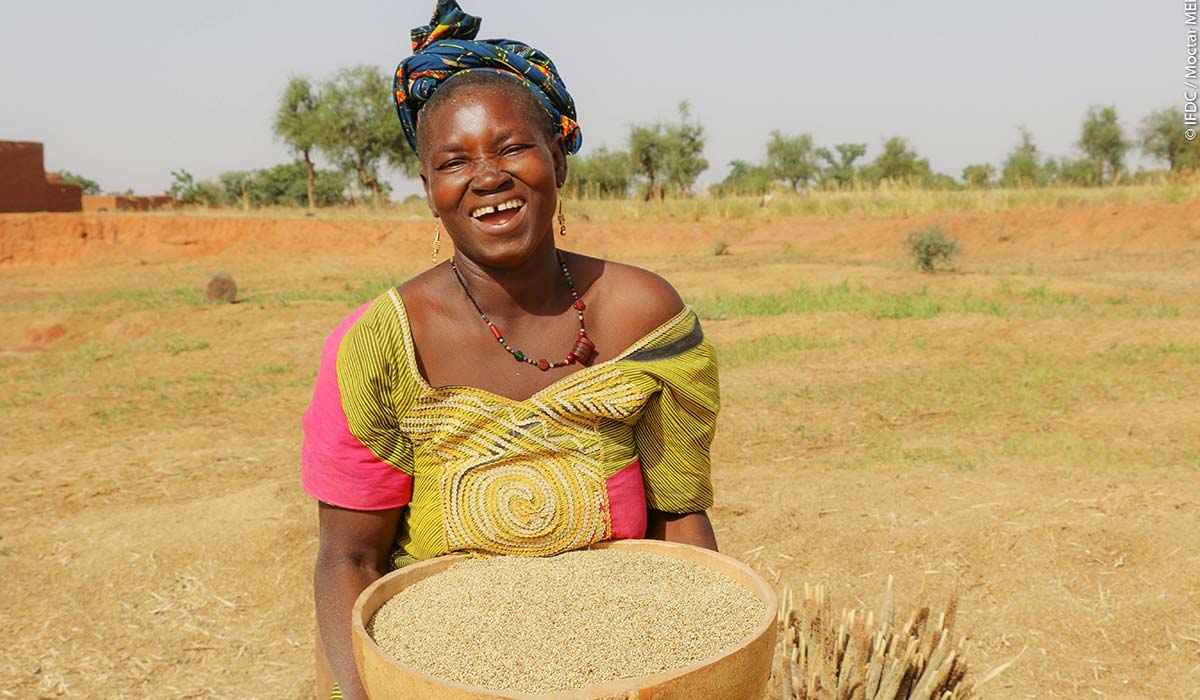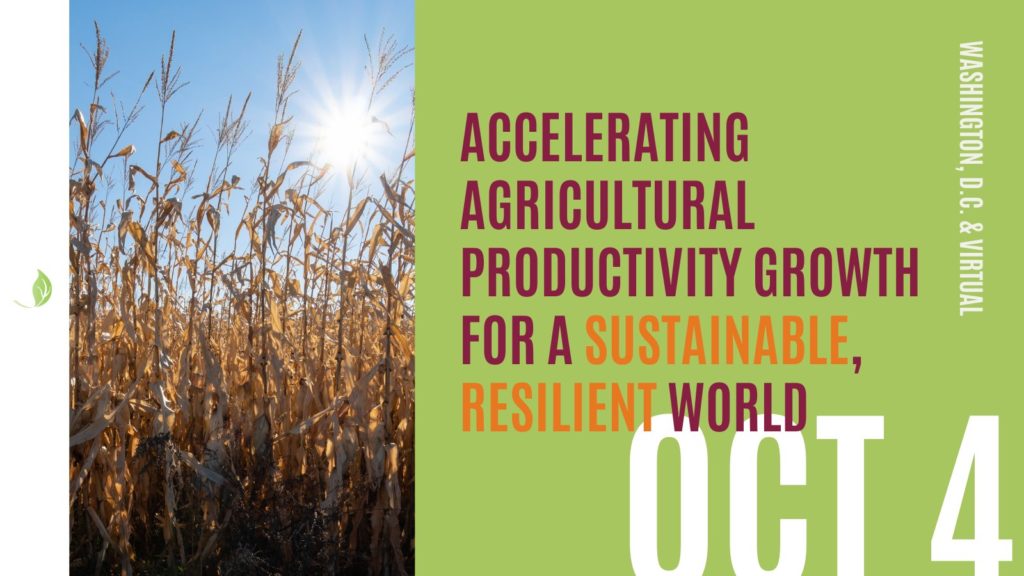
IFDC was honored to participate in the “Accelerating Agricultural Productivity Growth for a Sustainable, Resilient World” hybrid event on October 4, which was hosted by the Global Agricultural Productivity Initiative at Virginia Tech (GAP Initiative), the Coalition on Sustainable Productivity Growth for Food Security and Resource Conservation (SPG Coalition), and the U.S. Department of Agriculture (USDA). Hosted before a live audience at the National Press Club in Washington, D.C., the event allowed policymakers, private-sector innovators, and research leaders to discuss the need to accelerate agricultural productivity growth and propose concrete actions to do so.
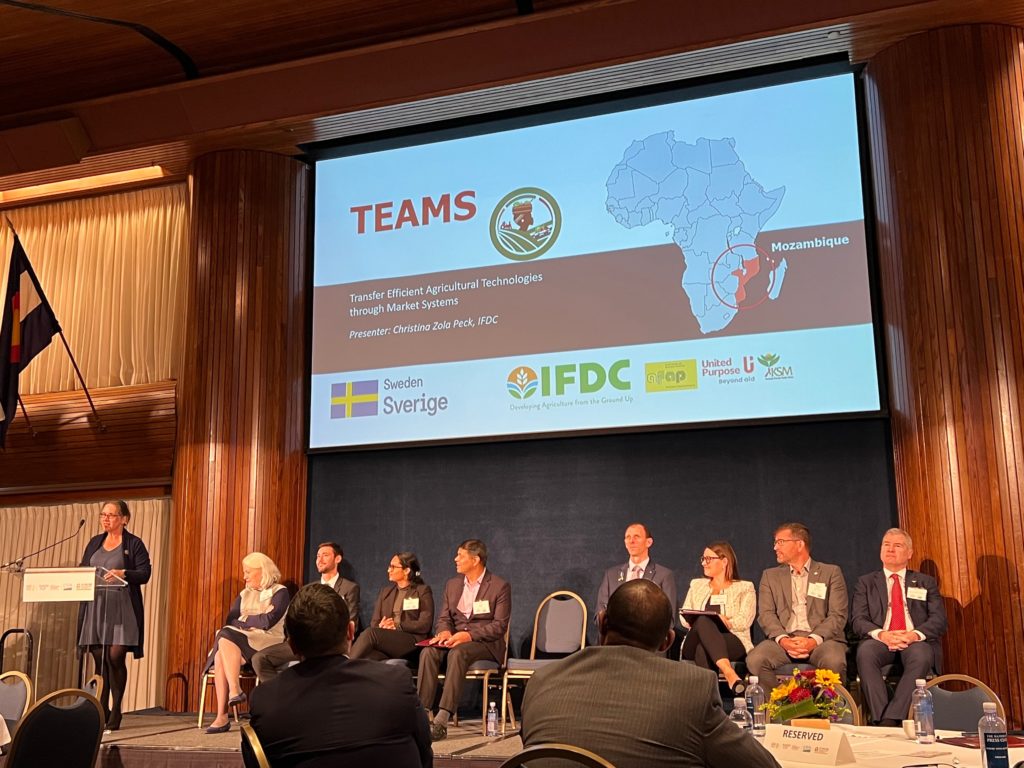
The gathering took place in two parts. The first portion focused on the official launch of the 2022 Global Agricultural Productivity (GAP) Report, which seeks to reverse the downward trajectory of global agricultural productivity growth by demanding urgent action from policymakers, leaders, donors, scientists, farmers, and others in the agri-food system. The second part of the event focused on mobilizing inclusive, broad-based action to accelerate sustainable productivity growth and featured the SPG Coalition Showcase, which highlighted efficient approaches to increase sustainable productivity growth for food security, resource conservation, and climate change mitigation.

As a member of the SPG Coalition, IFDC featured the Transfer Efficient Agricultural Technologies through Market Systems (TEAMS) program and its unique hybrid market systems development approach, which has been effective in increasing sustainable productivity, reducing the effects of climate change, and boosting the livelihoods of small-scale producers, including women. IFDC’s representative to the SPG Coalition and strategic communications manager, Christina Zola Peck, presented on the program’s development, innovative approach, and impact.
“A great example of an on-the-ground, inclusive initiative fostering improved productivity and sustainability.”
Lauded by the USDA as “a great example of an on-the-ground, inclusive initiative fostering improved productivity and sustainability,” the TEAMS program has improved food security and incomes, sustainable productivity, gender parity, and climate resilience for over 15,000 farmers (62% women) in Mozambique. The program’s whole-of-systems approach encourages synergies among economic, environmental, and social outcomes. Through inclusive hybrid market systems support, promotion of climate-smart agriculture (CSA), and a “leave-no-one-behind” ethic, the TEAMS program has strengthened agriculture and livelihoods in Mozambique.
Thanks to the program, agro-dealers, including women such as Flora Andre Sango, are finding success in Manica and Sofala provinces’ agriculture supply chains by providing access to last-mile services, input supply and distribution, and critical information to smallholder farmers. Moreover, TEAMS is also integrating ex-combatants into local farming groups, providing them with needed skills and the social and business linkages to build resilient livelihoods. IFDC is thankful to the GAP Initiative, the SPG Coalition, and the USDA for the opportunity to present our research and efforts as a model for sustainable productivity growth.
About IFDC: IFDC is an independent non-profit organization that combines innovative research, market systems development, and strategic partnerships to identify and scale sustainable soil solutions for improved food security and livelihoods around the world.
About TEAMS: TEAMS (2021-2022) is an Embassy of Sweden-funded program that aims to increase food availability and access for 15,500 farmers in Mozambique, with a focus on women’s economic empowerment through agriculture. IFDC is partnering with United Purpose, AKSM, and the African Fertilizer and Agribusiness Partnership (AFAP) to implement the program, which aids in the development of market systems by supporting market actors to develop a continuous supply network of input and output products and helps farmers to increase their resilience, productivity, and production using climate-smart agriculture.

